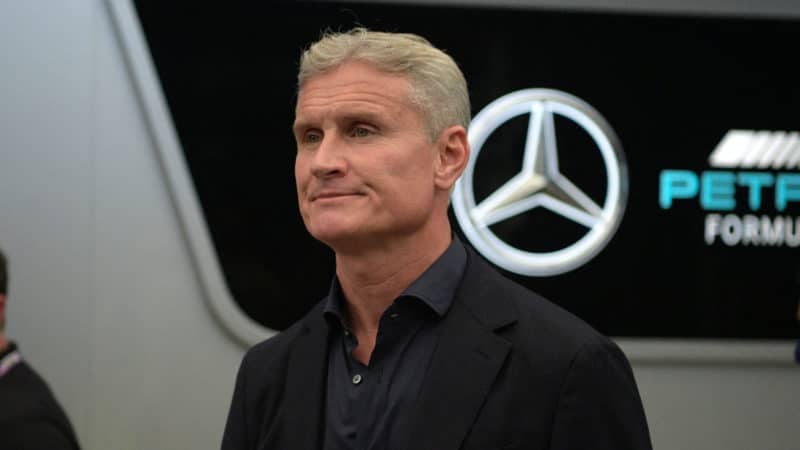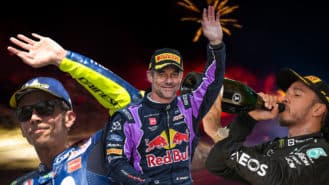Does his old competitive zest resurface on the rare occasions he dusts off his overalls?
“It always pleasantly surprises me that I can jump into a car at an event like the Race of Champions and everything swiftly feels very natural,” he says. “I don’t believe you ever lose that instinctive driving ability. At the very top level in circuit racing, though, I think you begin to lose the physical capacity. The moment you feel you are starting to hang on, your mind is no longer in the right place. When you’re young and on the way up, you’ve got raw speed but are probably lacking a bit on the fitness side. That eventually catches up, so you have the right levels of both fitness and speed, but as you get older your reactions begin to slow down – whether you like it or not – your eyes aren’t as good as they were and so on, though these things affect people at different stages.
“In 2008, my final Formula 1 season, I found I was instinctively going for racing gaps that were no longer there by the time I arrived. You’re in denial at first, of course, because you’ve not been in that situation before so you start blaming others, but eventually the penny drops that you are the common denominator. Earlier in my career I’d been able to pull off some pretty good passing moves – and by the time I’d thought about them I would already be in that gap…”
Was there a particular moment when the realisation dawned that the time to stop had come, leastways in terms of his F1 career?
He laughs and says, “Yes, it was during winter testing at Jerez before the 2008 season. I’d done all my physical preparation – and I was very disciplined about that, despite what people might think – but quickly realised that the Red Bull RB4 wasn’t going to be particularly competitive. It didn’t help that sister team Toro Rosso had more power from its Ferrari engine than we did from our Renault! They were both Adrian Newey cars, but because of the extra power they were able to run with more downforce absolutely everywhere. I knew before the first race that it was going to be a tricky year – and it dawned at the same time that I no longer had the fight in me for a season like that.
“I liken it to a professional boxer. The longer they go on, the less likely they are to pick themselves up from the canvas when floored by a punch – quite literally, the fight is no longer there.”


